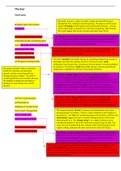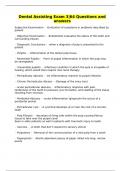Other
The Gun Vicki Feaver -- annotated w/ analysis
Complete with in-depth analysis that helped me to achieve full marks on the relevant comparative essay, and ultimately full marks in the A-Level exam itself (June 2022). Alongside close reading applies a range of critical perspectives (eg Marxism, postcolonialism etc) to enable alternative readings.
[Show more]





